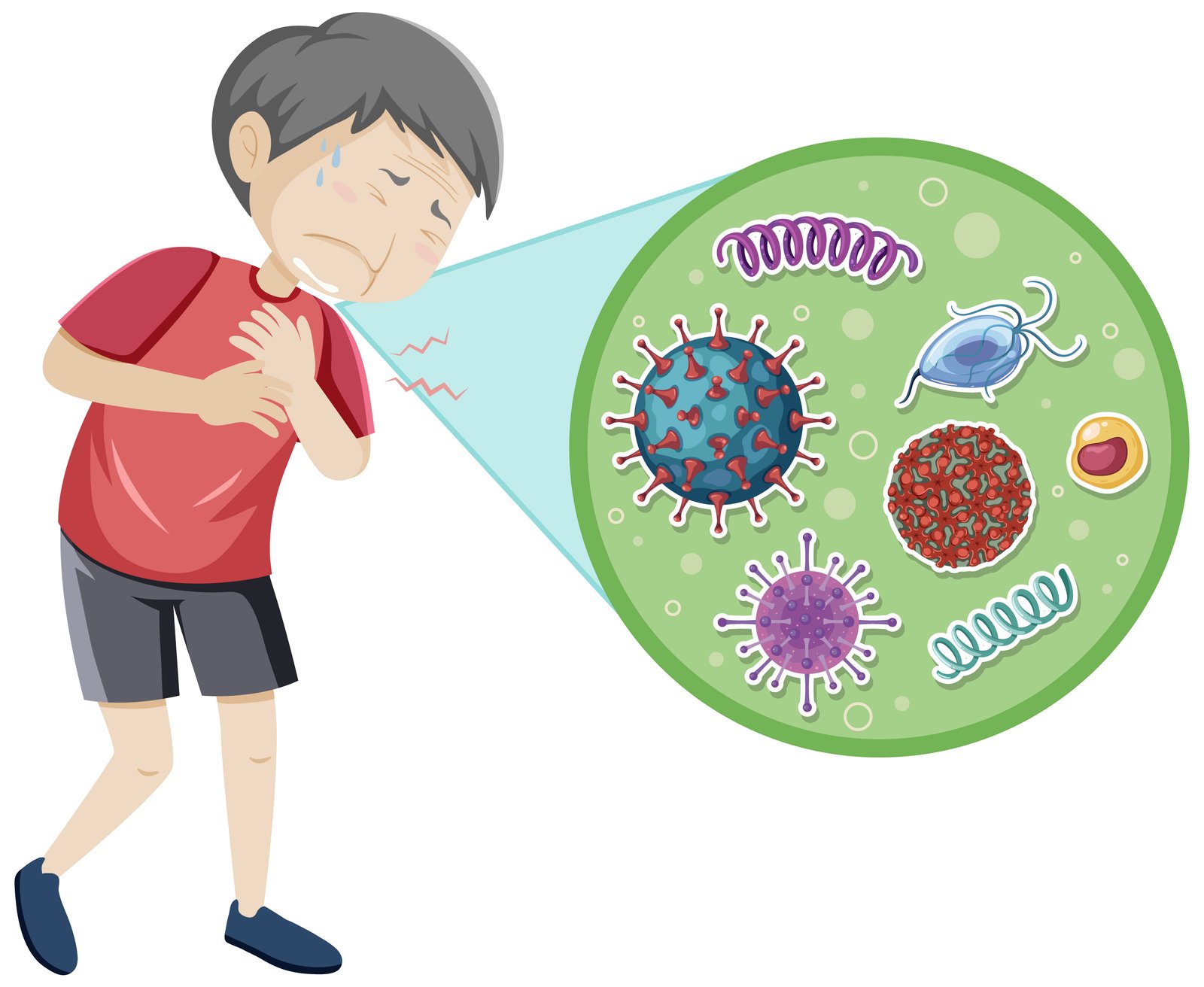
An underactive thyroid is linked to Hashimoto's disease, which slows metabolism and causes weight gain.
When you have Hashimoto's disease, losing weight can be difficult. Still, you may control your illness and reach a weight you're happy with by using a variety of diet ary and lifestyle choices.
What is Hashimoto's disease?
Hashimoto's disease is an autoimmune condition that is also referred to as Hashimoto's thyroiditis. When a person has an autoimmune disease, their body misinterprets healthy cells for harmful invaders and assaults them. When you have Hashimoto's, your body targets the thyroid gland, which eventually results in hypothyroidism.
When the thyroid gland is not producing enough hormones to meet the body's needs, the condition is known as hypothyroidism. Hormones that regulate the body's metabolism and numerous other functions are produced by the thyroid gland.
Causes of Hashimoto's disease
Numerous studies have been carried out by researchers in an attempt to solve the enigma of what causes autoimmune illnesses, but it remains unclear.
As of right now, research indicates that immune system malfunction in Hashimoto's disease is brought on by a confluence of environmental and hereditary variables.
Certain genes may provide more susceptibility, and environmental factors might act as catalysts to promote the onset of autoimmune diseases.
Symptoms of Hashimoto's disease
Most folks don't immediately exhibit any symptoms. As your illness worsens, you can develop a goiter, which is an enlargement of the thyroid gland. It's among the early signs of Hashimoto's disease.
Other typical indications of the Hashimoto's disease are:
-
Unexplained fatigue
-
Chills
-
Weight gain
-
Pain in your muscles and stiff joints
-
Depression
-
Constipation
-
A slowed heartbeat
-
Memory problems
-
Puffy eyes
-
Hair loss
-
Irregular menstrual periods
Diagnosis of Hashimoto's disease
Your healthcare professional will assess your medical history and do a physical examination before proceeding. To check for enlargement, your doctor will palpate your thyroid gland.
The following blood tests will next be required of you:
-
Thyroid-stimulating hormone (TSH) test: A high TSH level suggests that you may have Hashimoto's disease because your thyroid gland is not making enough T4 hormones.
-
The T4 test: Low levels of T4 hormones may indicate hypothyroidism.
-
Antithyroid antibody test: Elevated antibody levels may indicate the onset of Hashimoto's disease.
Your thyroid gland may also need to be ultrasonically examined by your physician. Your gland's dimensions and form will be displayed in the findings. Any growths in the neck area can also be found using an ultrasonography.
Risk factors of Hashimoto's disease
Your risk of having Hashimoto's disease will rise as a result of the following factors:
-
Sex: Compared to men, women are more likely to have Hashimoto's disease.
-
Age: Although Hashimoto's disease can strike anyone at any age, middle-aged people are more likely to have the condition.
-
Other autoimmune diseases: Your chance of developing Hashimoto's disease increases if you already have another autoimmune condition, such as type 1 diabetes or lupus.
-
Pregnancy: After pregnancy, hormonal changes throughout the pregnancy may cause Hashimoto's disease.
-
Family history: Having thyroid diseases or autoimmune issues in other family members increases the risk of developing Hashimoto's disease.
Too much iodine intake: Overconsumption of iodine in the diet may serve as a trigger for individuals who are already susceptible to Hashimoto's disease.
Complications of Hashimoto's disease
Without therapy, Hashimoto's disease might result in additional issues like:
-
Goiter: This is an enlargement of the thyroid gland that can cause difficulty swallowing and change the way you look.
-
Mental health disorders: Early in the course of the illness, depression may manifest itself, and it may even get worse.
-
Heart issues: An irregular heartbeat and elevated blood pressure are two consequences of hypothyroidism.
-
Poor pregnancy outcomes: Hypothyroidism can raise the risk of miscarriage and make it more difficult to conceive.
If you have Hashimoto's disease, is it possible to lose weight?
Hashimoto's disease directly affects and slows down your metabolism because it causes hypothyroidism. Your body will metabolize whatever you eat slowly, which will eventually cause you to gain weight. Even while you might not put on a lot of weight, this could be enough to make you feel less confident.
The amount of weight you gain will depend on how severe your hypothyroidism is. The good news is that you can include diet ary and lifestyle adjustments to lose this weight.
1. Cut down on sugar
Cutting less on sugar in your diet can help people with Hashimoto's disease lose weight because too much sugar can cause inflammation and weight gain.
Simple carbs digest fast to produce glucose, which powers your body. Your body converts extra glucose from eating too many simple carbohydrates to fat.
Complex carbohydrates are metabolized by your body considerably more slowly, allowing it to utilize the energy they produce more efficiently.
2. Follow a diet for Hashimoto's disease
It is crucial to maintain a balanced diet because your body might burn less calories than it takes in.
Reducing processed foods, sugar, and junk food consumption may all be necessary to consume less calories. Don't go overboard with this, though. Above all, consult your physician before beginning a diet .
Nevertheless, there are other solutions to your issue besides cutting less on sugar and switching to a low-carb diet . A comprehensive list of foods to include and exclude from your diet may be found below. Any food that causes inflammation should be cut out of your diet .
Foods to eat
The Autoimmune Paleo (AIP) diet is advised by most medical practitioners to be followed for approximately six months. One of the best diet s for losing weight if you have Hashimoto's disease is the AIP diet .
By avoiding potentially inflammatory meals and combining the consumption of foods with anti-inflammatory qualities, this diet aims to minimize inflammation.
The AIP diet may lessen systemic inflammation, according to research. If you follow the AIP diet to lose weight, the following foods will become your new favorites:
-
Eat lean proteins such as chicken, beef, eggs and shellfish.
-
Consume fermented nondairy foods, such as apple cider vinegar
-
Consume a lot of cabbage, broccoli, and other cruciferous vegetables
-
Green tea
-
Vegetables high in sulfur: onions, leeks, and garlic
-
Restrictions on fruits, honey, and maple syrup
Foods to avoid
Avoid foods that induce inflammation, as was already explained. You should avoid dairy, soy, and gluten in your diet . You ought to cut out these items from your diet :
-
Dairy
-
Dried fruits
-
Alcohol
-
Chocolate
-
Coffee
-
Refined sugars
-
Nuts and seeds
-
Nightshade vegetables: Tomatoes, peppers, and potatoes
-
Alternative sweeteners: Aspartame and sucralose
To choose the ideal diet plan for you, make sure you talk to your doctor about your weight-loss goals.
3. Incorporate intermittent fasting
Selecting an eating time is the first step in implementing intermittent fasting (IF). At least two hours before you go to bed, this window should close. The time between your last meal of the day and your first meal of the following morning should be 12 hours.
You can increase the duration of your fast to 16 hours if you want this tactic to work better.
However, IF isn't a panacea: you will still gain weight if you eat too many calories during your window for eating.
You are not allowed to fast for longer than 12 hours if you have diabetes . To find out if intermittent fasting is right for you, speak with your doctor.
4. Adopt stress-relief techniques
One of the main factors contributing to underactive thyroid in Hashimoto's disease patients is stress. Your hormone levels can be balanced by reducing stress. Here are some practical methods to help you reduce your stress:
-
Get enough sleep: Make sure you get 8 hours or more of good sleep each day.
-
Practice meditation: Through reducing the overproduction of the hormone cortisol, meditation reduces stress.
-
Avoid using technology before bedtime: When you sleep, you can greatly enhance the quality of your sleep by blocking blue light.
5. Exercise regularly
Engaging in physical activity is crucial for your weight loss quest. Frequent activity will assist your body in burning extra calories, which will aid in weight loss .
You're not required to follow a rigid fitness schedule. It will be beneficial to engage in mild exercises like walking, swimming, biking, and moderate jogging at least three times a week. When it's appropriate for you, you can lengthen and intensify the session.
Benefits of exercise include:
-
Fighting depression
-
Increasing your energy levels
-
Reducing joint pain
-
Losing excessive weight
-
Boosting your self-esteem
Five times a week for thirty minutes of exercise is an excellent goal to strive toward. Before engaging in any high-intensity exercise, see your doctor, particularly if you have any underlying medical disorders, such as heart issues. Consult your physician for advice on how much weight loss is appropriate.
The lowdown
It's difficult to lose weight , especially when your body is against you. You have a more difficult challenge if you have Hashimoto's disease.
Hypothyroidism, which is brought on by Hashimoto's disease, slows down metabolism and causes weight gain.
But you may make changes to your eating habits, exercise routine, and diet to help you lose weight. But before you begin, make sure you talk to your doctor about your weight-loss plans.


